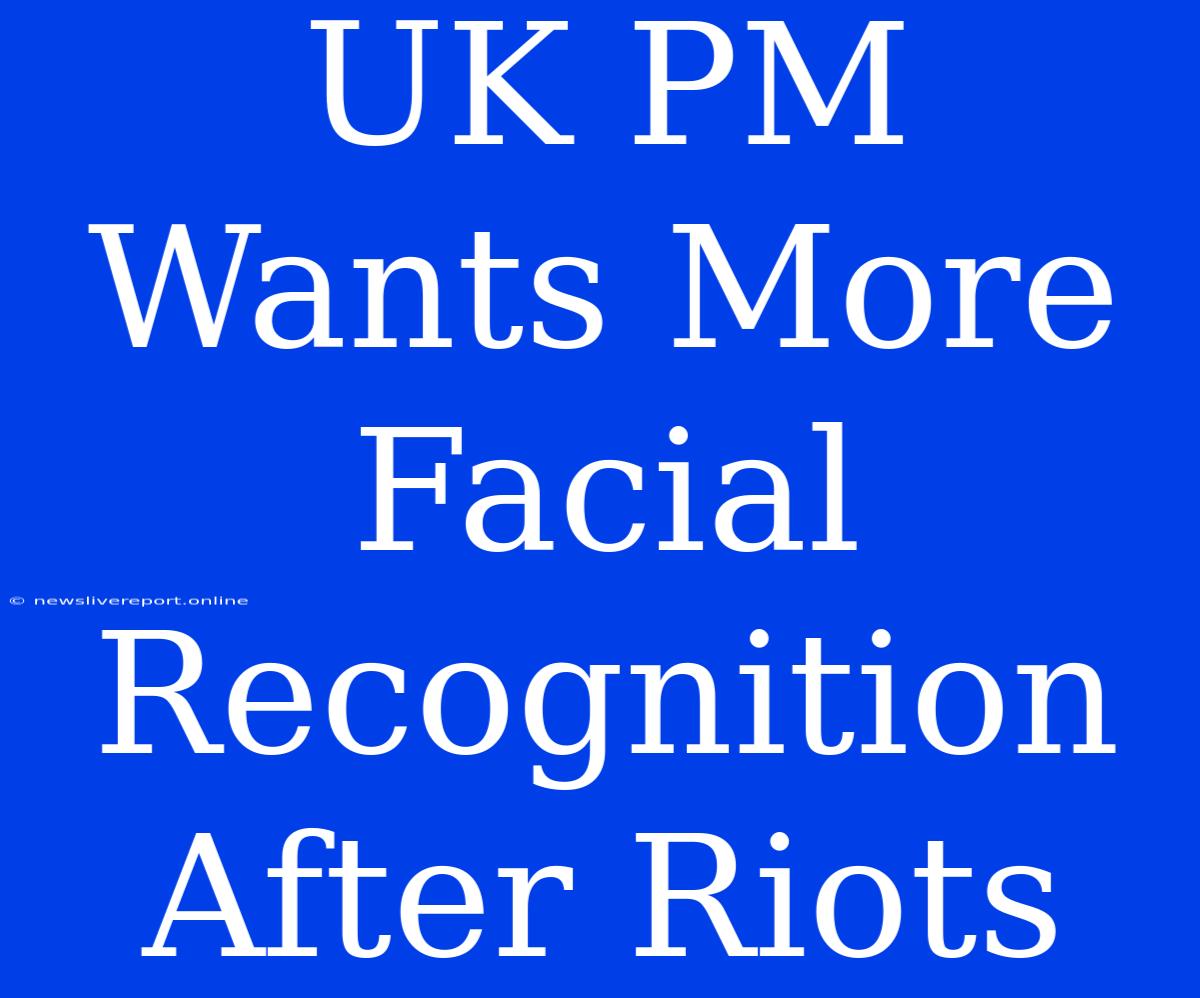UK PM Wants More Facial Recognition After Riots: A Dangerous Precedent?
Following the recent riots in England, UK Prime Minister Rishi Sunak has announced plans to expand the use of facial recognition technology in public spaces. This move has sparked heated debate, with critics raising concerns about civil liberties and potential misuse.
The Government's Stance:
Sunak argues that the technology is necessary to deter and detect crime, claiming that it can help identify individuals involved in violent incidents. He believes that increased deployment of facial recognition will enhance public safety and deter future disturbances.
Concerns about Privacy and Bias:
However, the proposal has been met with strong opposition from privacy advocates and civil liberty groups. They argue that facial recognition technology poses serious risks to individual privacy and can be used to unfairly target marginalized communities.
H3: Potential for Misuse and Inaccurate Identification:
Critics highlight the potential for misuse of facial recognition, including its use for mass surveillance and the creation of vast databases of personal data. They also warn of the possibility of inaccurate identifications, leading to wrongful arrests and damage to reputations.
H3: Algorithmic Bias and Discriminatory Impact:
Furthermore, concerns have been raised about the inherent biases in facial recognition algorithms. Studies have shown that these algorithms often perform worse on individuals with darker skin tones and those from underrepresented groups, potentially exacerbating existing inequalities.
H3: Lack of Transparency and Public Oversight:
Many experts are also critical of the lack of transparency and public oversight surrounding the use of facial recognition technology. They argue that the government should be more open about how it collects, stores, and uses this data.
Moving Forward:
The UK's proposed expansion of facial recognition technology raises serious questions about the balance between security and privacy. It is crucial for the government to address the concerns of civil liberty groups and ensure that any implementation of the technology is done in a responsible and ethical manner. This includes rigorous independent oversight, transparency in data collection and usage, and safeguards against bias and misuse.
The debate surrounding facial recognition is likely to continue as the government pushes ahead with its plans. It is essential that public discourse remains open and informed, ensuring that the potential benefits of this technology are weighed against its potential risks to individual rights and freedoms.

